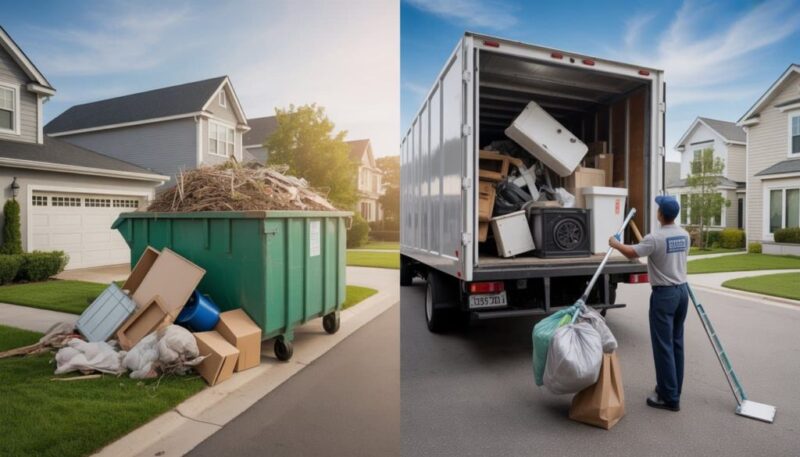Every community faces moments when waste management becomes a collective challenge. Whether it’s organizing a neighborhood cleanup, responding to storm damage, or revitalizing a public space, large-scale cleanups require more than just volunteers with trash bags. They demand an organized, efficient, and environmentally responsible system for handling debris.
That’s where dumpster rentals step in. Far from being just a convenience, dumpsters are essential tools for keeping community cleanup projects on track. With providers like Temporary Dumpster, towns, neighborhoods, and organizations can tackle waste removal in a way that’s safe, efficient, and eco-conscious.
Why Large-Scale Cleanups Need More Than Curbside Pickup
Curbside bins are designed for everyday household waste—not the massive amounts of debris generated during community cleanups. From bulky furniture and old appliances to yard waste and construction debris, these projects often produce materials that can’t be handled by regular municipal services.
SPONSOR AD
Without a proper disposal solution, waste piles up, creating eyesores and potential hazards. A roll-off dumpster provides the central collection point needed to keep cleanup efforts organized and effective.
The Benefits of Dumpster Rentals for Community Cleanups
1. Efficiency and Organization
When volunteers know exactly where to put debris, projects move faster. Instead of scattering bags and piles across the neighborhood, everything goes into a single container. This keeps streets and parks clear and makes final disposal much easier.
2. Safety for Volunteers and Residents
Large cleanups often involve sharp or heavy items like broken furniture, glass, or branches. Having a dumpster on-site ensures these materials are contained immediately, reducing the risk of injury.
3. Cost-Effectiveness
Multiple trips to the landfill waste time and fuel. A single large dumpster can hold the equivalent of several truckloads, saving both money and effort.
4. Eco-Friendly Disposal
With an eco-friendly dumpster rental, communities can ensure that recyclable materials—such as metal, wood, or concrete—are separated and processed responsibly, reducing landfill waste and supporting sustainability goals.
Real-World Examples of Dumpster Use in Communities
- Post-Storm Recovery: After severe weather, downed trees, damaged roofing, and scattered debris overwhelm neighborhoods. Dumpsters provide a fast, safe way to collect and remove this waste so residents can focus on recovery.
- Neighborhood Revitalization: Community associations often organize cleanup days to remove junk from vacant lots, alleys, or abandoned homes. Dumpsters make it possible to handle large volumes of trash in a single effort.
- Public Event Cleanup: Festivals, fairs, and parades bring joy to communities—but also generate significant waste. Renting dumpsters ensures that cleanup is swift and thorough, leaving public spaces ready for use again.
Partnering with the Right Provider
The success of a large-scale cleanup often depends on having the right support. With Temporary Dumpster, communities gain access to a wide range of dumpster sizes, flexible rental terms, and expert guidance on proper disposal. Their commitment to sustainability ensures that collected waste is handled responsibly, with recycling and recovery prioritized whenever possible.
By choosing a provider that values eco-friendly practices, communities not only achieve cleaner streets and parks but also contribute to long-term environmental health.
Large-scale cleanups are about more than just removing trash—they’re about restoring pride, safety, and beauty to the places we call home. Dumpster rentals make these efforts possible by providing the tools needed to manage waste efficiently and responsibly.
With the help of Temporary Dumpster, neighborhoods and organizations can take on even the biggest cleanup challenges. Their eco-friendly dumpster rental services ensure that waste is not only removed but also managed in a way that supports recycling and sustainability goals.
When communities come together with the right resources, cleanups become more than a one-day event—they become a step toward a cleaner, greener future for everyone.







